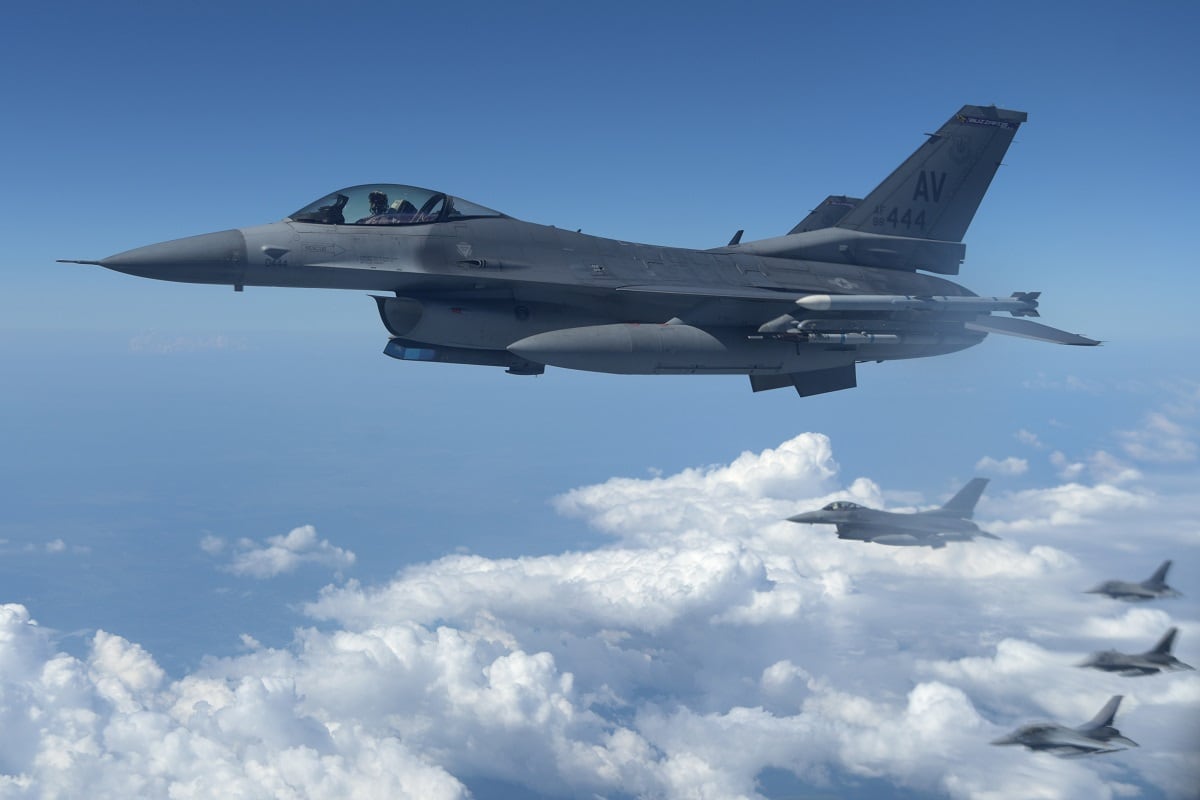WASHINGTON ― Romania’s foreign minister said Tuesday he asked U.S. Secretary of State Antony Blinken in person to consider boosting the U.S. troop presence on the Black Sea to address flaring tensions with Russia.
“We have discussed about the importance of increasing the U.S. presence in the region and in Romania,” H.E. Bogdan Aurescu said at an Atlantic Council event a day after the meeting ― which also focused on economic and energy cooperation in the region.
State Department Spokesman Ned Price said Blinken, in the meeting, “praised Romania as a stalwart NATO ally, and both agreed to collaborate on Black Sea security issues and Russian aggression against Ukraine and others on NATO’s Eastern Flank.”
The Black Sea has become a flashpoint in tensions between Moscow and the West after Russia annexed Crimea in 2014, which gave it access to the peninsula’s Black Sea coast. That and Russia’s seizure of Georgian territories in 2008 have fueled two of the region’s protracted conflicts ― and Aurescu called on the European Union to tackle them.
“We have neglected ― we’ve become somehow accustomed to these protracted conflicts,” Aurescu said Tuesday. “Some call them frozen, but they are not frozen. What is frozen is the solution of these conflicts. The conflicts are there, their resolution is being delayed.”
Aurescu said he and Blinken discussed NATO’s forthcoming strategic concept as well as the idea of further consolidating NATO’s defense and deterrence posture on the Eastern Flank, “especially at the Black Sea, where we see that there are a lot of a lot of tensions and interesting evolutions.”
Aurescu said allied resources are imbalanced in favor of the north end of NATO’s eastern flank and needed to be rebalanced toward the south end, “to build this coherent approach of the East Flank as a whole.”
RELATED

The U.S. has urged regional security cooperation as an approach to Russia, though NATO ally Turkey, which dominates the Black Sea and has complex ties with Moscow, has historically been reluctant about a Western military presence there. Still, Aurescu sounded a hopeful note.
“Interaction with Turkey in the context of NATO is perhaps sometimes challenging because we don’t have the same approach toward NATO involvement, but at the end of the day, the goal is the same: having more security in the Black Sea area,” he said.
“I’m very confident that during the negotiation of the strategic concept, we will be able, at the end of the whole process, to have good solutions for security in the Black Sea region.”
Russian Defense Minister Sergei Shoigu on Sunday called the ongoing presence of the U.S. Navy in the Black Sea a provocation. The U.S. destroyer Porter and the 6th Fleet flagship Mount Whitney sailed into the Black Sea in recent days and arrived at Batumi, Georgia, on Monday.
Last week, Ukraine’s defense ministry said there were 90,000 Russian troops not far from the border and in rebel-controlled areas in Ukraine’s east. Satellite images showed a buildup of armored units, tanks and self-propelled artillery as well.
Romania and Ukraine told Congress last month they want Western allies to boost their military presence in the region to counter its militarization by Russia. Romania has called for a Black Sea strategy and a larger role for itself with more joint exercises, prepositioned military equipment and new forces.
Romania has said it is spending $3 billion to expand its Mihail Kogălniceanu Air Base nine-fold with the goal of hosting an expanded U.S. and allied presence.
Meanwhile, Romania is working to make its still-developing Euro-Atlantic Centre for Resilience fully operational, Aurescu said Tuesday. As envisioned, it would support NATO and European Union members in the areas of emerging technologies and continuity of government in response to threats from state and non-state actors.
Joe Gould was the senior Pentagon reporter for Defense News, covering the intersection of national security policy, politics and the defense industry. He had previously served as Congress reporter.







